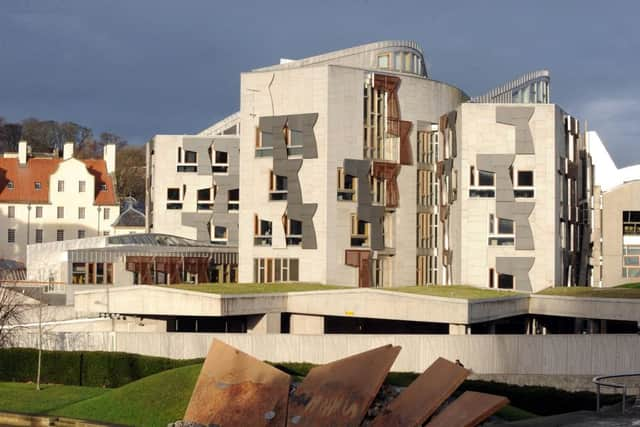Scotland’s literary culture ‘cosy’ with Holyrood government
Scott Hames, a lecturer in Scottish literature at the University of Stirling, examined the role of intellectuals in shaping constitutional change north of the border by consulting a range of literary and political archive material.
The resulting book, The Literary Politics Of Scottish Devolution, is described as offering the first critical history of how Holyrood came to be.
Advertisement
Hide AdMany of Scotland’s most prominent writers in the decade leading up to the 1997 referendum on devolution were publicly supportive of the idea, with many subsequently backing a Yes vote at the 2014 independence plebiscite.


Among them was the celebrated novelist Alasdair Gray, who died last month, who authored a well-received book in 1992 entitled Why Scots Should Rule Scotland.
But the role played by writers in establishing a devolved parliament should not be overplayed, Hames argues in his book.
He compares what he describes as “the dream” of cultural empowerment and “the grind” of electoral strategy, with pragmatic political gain often being a motivating factor among parties when it came to supporting devolution.
The book traces the influence of magazines such as Scottish International, Radical Scotland and Edinburgh Review, as well as the fiction of William McIlvanney, James Kelman, Irvine Welsh, AL Kennedy and James Robertson.
“Novels and poems are not what made the Scottish Parliament happen,” Hames said in an interview with Scotland on Sunday.
Advertisement
Hide Ad“But literary culture did play an important role in re-branding devolution as a creative feat of imagination in ways that appealed to the public and flattered the political parties – who had been grinding away at various thwarted proposals for decades.
“Viewed in political and electoral terms, devolution is not a very uplifting story.
Advertisement
Hide Ad“Re-cast as a cultural cause and project it becomes much more stirring and vivid.
“However, the resulting myth of cultural devolution tends to mask the limits, compromises and Britishness of devolution.”
He continued: “By the time of the Scottish Constitutional Convention, devolution can be viewed as an elite project, supported by almost every powerful institution in Scotland.
“Within that coalition, the role of writers and critics was to give a kind of cultural imprimatur to a devolutionary establishment-in-waiting. Its oppositional clout dwindled considerably, and today Scottish literary culture is fairly cosy with the aims and ethos of devolved government.”
Ahead of the 2014 referendum on Scottish independence much was made of the number of writers who publicly endorsed a Yes vote.
Hames believes the uniformity of opinion among artists was exaggerated, but added that many would still back independence if an indyref2 was to take place.
Advertisement
Hide Ad“I would imagine various prominent Scottish writers will take up quite different positions, from radical critique to pragmatic support of the Yes2 prospectus, with a small number of vocal unionists,” he continued.
“Whether writers on the same side, constitutionally, are willing to argue in public is another matter.
Advertisement
Hide Ad“The boosterism of Scottish culture was greatly and regrettably enhanced by the first indyref, and while a counter-reaction is long overdue, the salience of Scottishness in electoral politics encourages a great deal of caution and self-censorship.”
Jennifer Robertson, who served as the head of PR for the Yes Scotland campaign before the 2014 vote, said: “Artists have been a prominent part of the campaign for Scottish independence for as long as I can remember.
“That intensified during the 2014 referendum with many playing a leading role in the public campaign.
“Where culture leads politics follows and I expect even more artists will campaign vociferously for Yes in indyref2 in a Boris and Brexit era.”
